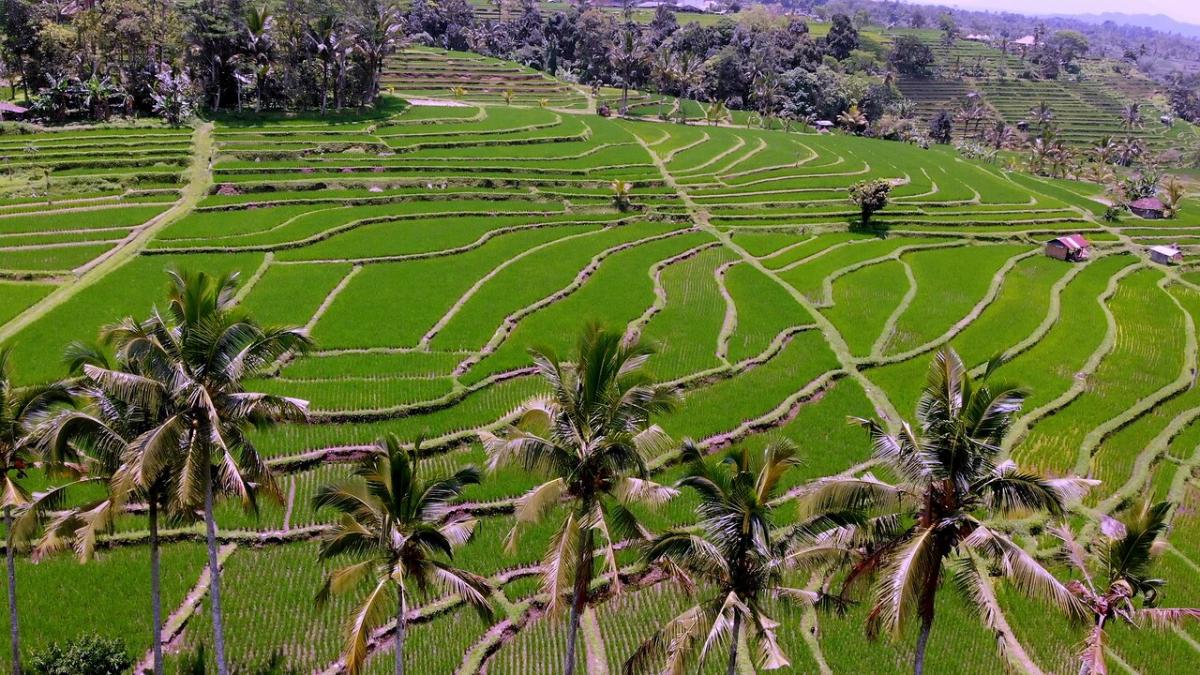The sight of rice fields in Indonesia, especially when captured from the air by a drone, is truly breathtaking. These fields, known as “sawah,” create a stunning patchwork of green and gold landscapes that are a testament to the intricate and labor-intensive agricultural practices of the region. In places like Bali and Java, rice is often grown on terraced fields carved into hillsides. These terraces create a dramatic, stepped landscape that looks especially striking from above. The symmetry and geometry of the terraces are both functional and visually appealing. Depending on the stage of the rice growth cycle, fields can display a range of colors from vibrant greens to golden yellows. This creates a dynamic and ever-changing mosaic when viewed from the air. In the early stages of rice planting, fields are flooded with water. When viewed from above, these water-filled fields can reflect the sky, clouds, and surrounding landscapes, adding a mirror-like quality to the scenery. Viewing rice fields from above through drone footage provides a unique perspective that highlights the beauty and complexity of Indonesian agriculture. Whether for artistic, educational, or recreational purposes, these aerial views are a stunning way to appreciate one of Indonesia’s most vital and beautiful landscapes. The world depends on rice as one of the most consumed foods that we grow. The low cost provides many people with sustenance at an affordable price. The labour costs of rice picking are low, due to many factors. Many ride farms pay their workers with a share of the grain, as opposed to a monetary wage. This is the reason that a bag of rice that is purchased in North America is priced at pennies per pound, even though it is shipped from the other side of the world.
